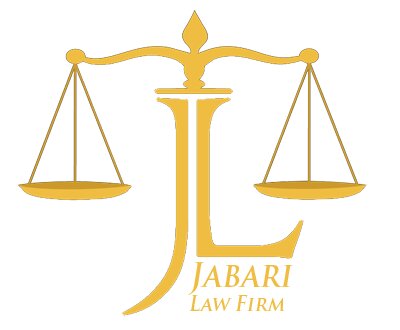Best Accounting & Auditing Lawyers in Hashemite Kingdom of Jordan
Share your needs with us, get contacted by law firms.
Free. Takes 2 min.
Or refine your search by selecting a city:
List of the best lawyers in Hashemite Kingdom of Jordan
About Accounting & Auditing Law in Hashemite Kingdom of Jordan
In the Hashemite Kingdom of Jordan, accounting and auditing are critical components of the financial and economic landscape. The legal framework governing these fields is designed to ensure accuracy, transparency, and accountability in financial reporting. These laws ensure businesses, both large and small, adhere to set standards that foster trust and reliability in the financial markets. With the rapid growth of the Jordanian economy, adherence to sound accounting and auditing practices is essential for ensuring sustainable development and attracting foreign investment.
Why You May Need a Lawyer
There are several scenarios where individuals or businesses might require legal assistance in the realm of accounting and auditing:
- If you are starting a business, you may need legal guidance on setting up appropriate accounting systems in compliance with Jordanian laws.
- If you are involved in a financial dispute, such as issues related to audits or misrepresentation of financial statements, legal counsel can help navigate such complexities.
- Assistance may be needed for filing taxes correctly or dealing with accusations of financial misconduct or fraud.
- Those in charge of non-profits or NGOs might seek legal advice to adhere to specific financial regulations applicable to their type of organization.
- Companies seeking to list on the Amman Stock Exchange can benefit from a lawyer’s assistance to ensure compliance with stringent financial reporting standards.
Local Laws Overview
The accounting and auditing laws in Jordan are primarily governed by various statutes and regulations intended to maintain high standards of financial practice:
- The Companies Law governs how businesses maintain their accounting records and the necessary disclosures.
- The Income Tax Law specifies how businesses should report earnings and deductions, and how audits should be conducted to ensure compliance.
- Jordan follows International Financial Reporting Standards (IFRS), which guide financial accounting procedures and standards.
- The Accountants Association in Jordan provides oversight and regulation to ensure compliance with accounting practices.
- The Central Bank of Jordan also plays a role, particularly in regulating financial institutions and their accounting practices.
Frequently Asked Questions
1. What are the main accounting standards used in Jordan?
Jordan primarily uses International Financial Reporting Standards (IFRS) for accounting purposes.
2. Is it mandatory for companies in Jordan to be audited?
Yes, all public companies and many private companies in Jordan are required to have their financial statements audited by a certified auditor.
3. Who regulates auditors in Jordan?
Auditors in Jordan are regulated by the Jordanian Association of Certified Public Accountants (JACPA).
4. Can foreign companies operate under their home country’s accounting standards?
No, foreign companies must adhere to IFRS as well as any specific local regulations relevant to their operations in Jordan.
5. How often do companies need to file financial reports?
Companies must typically submit financial reports annually, although there may be instances requiring more frequent submissions, depending on the regulatory body or the business sector.
6. What enforcement actions can be taken against non-compliance in accounting and auditing?
Enforcement actions can include fines, sanctions, license revocation, and possible legal action or prosecution for repeated violations.
7. How do taxes affect accounting practices in Jordan?
The Income Tax Law in Jordan has significant implications on how accounting is conducted, as it dictates how income should be reported and what deductions are permissible.
8. What are the penalties for accounting fraud?
Penalties for accounting fraud can range from financial penalties to imprisonment, depending on the severity and impact of the fraud.
9. Are there special accounting rules for small businesses in Jordan?
While small businesses are generally subject to the same accounting standards, there might be simplified reporting requirements available to reduce the burden of compliance.
10. Can taxation issues be resolved through arbitration in Jordan?
Yes, it is possible to resolve certain taxation issues through arbitration, although this depends on the specifics of the case and agreements between the parties involved.
Additional Resources
For those seeking more information or assistance, consider the following resources:
- Jordan Securities Commission (JSC): Oversees financial markets and ensures compliance with financial regulations.
- Jordan Ministry of Finance: Offers resources and guidelines related to tax regulations and national financial policies.
- Jordanian Association of Certified Public Accountants (JACPA): Provides certification, resources, and support for accountants and auditors in Jordan.
- Central Bank of Jordan: Regulates and supervises financial institutions, offering a range of guidelines for the banking sector.
Next Steps
If you find yourself needing legal assistance in accounting and auditing within Jordan, here are the suggested steps you can take:
- Identify and document the specific legal issues or queries you have regarding accounting or auditing.
- Consult with a certified lawyer who specializes in Jordanian financial and accounting law to gain tailored advice.
- Review your accounting practices and ensure they align with both local and international laws, engaging professionals for audits if necessary.
- Stay informed about updates or changes in legislation that may affect your business or personal accounting practices.
- Contact professional organizations, like the JACPA, for referrals to qualified accountants or auditors who can offer compliance support.
Lawzana helps you find the best lawyers and law firms in Hashemite Kingdom of Jordan through a curated and pre-screened list of qualified legal professionals. Our platform offers rankings and detailed profiles of attorneys and law firms, allowing you to compare based on practice areas, including Accounting & Auditing, experience, and client feedback.
Each profile includes a description of the firm's areas of practice, client reviews, team members and partners, year of establishment, spoken languages, office locations, contact information, social media presence, and any published articles or resources. Most firms on our platform speak English and are experienced in both local and international legal matters.
Get a quote from top-rated law firms in Hashemite Kingdom of Jordan — quickly, securely, and without unnecessary hassle.
Disclaimer:
The information provided on this page is for general informational purposes only and does not constitute legal advice. While we strive to ensure the accuracy and relevance of the content, legal information may change over time, and interpretations of the law can vary. You should always consult with a qualified legal professional for advice specific to your situation.
We disclaim all liability for actions taken or not taken based on the content of this page. If you believe any information is incorrect or outdated, please contact us, and we will review and update it where appropriate.
Browse accounting & auditing law firms by city in Hashemite Kingdom of Jordan
Refine your search by selecting a city.














